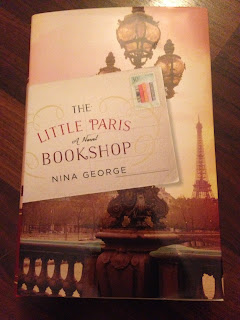The thing is, even a talent for reading won't make every book easy and some worthwhile works require effort. I found that out in high school when we were assigned Chekhov's "The Cherry Orchard" and all those Russian characters were confusing me. That is also where I learned the single greatest reading trick. When you sit down to read a challenging work, have something close you can write on.
Let me go back to "The Cherry Orchard"
That practice served me well a few years ago when J. K. Rowling published The Casual Vacancy. After her like-able and easy to read Potter series, The Casual Vacancy was an unwelcome surprise to those who secretly expected all of her books to be charming. Instead there was a huge cast of unpleasant people trying to manipulate each other. A lot of readers gave up. Me, I'm stubborn so I got out the old steno pad and started making notes. By a third of the way through I could see where the author was going (she has a huge social conscience) and I didn't need the pad any more. Now when I can't keep focused on the text, out comes the pencil and paper.
A lot of people think reading should be easy, and popular literature follows that mantra, but some really good books require effort. If you want to try something a bit more sophisticated but you're having trouble keeping up with the characters, break out the pencil and paper. Give big characters a page of their own where you can write about them, allow extras to share a page. Write down what you know, and draw arrows or underline until you understand what's going on. And if you see my English teacher, Mr. Schultz, tell him the old technique still works.
















